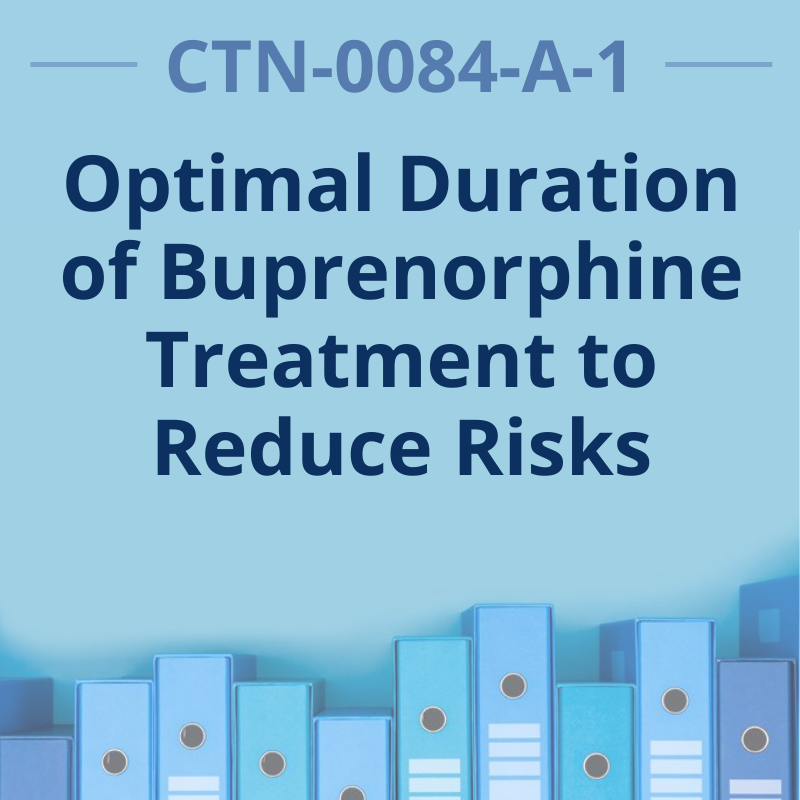CTN-0084-A-1: Determining the Optimal Duration of Buprenorphine Treatment to Reduce the Risk of Relapse, Overdose, and Mortality

Cynthia Campbell, PhD
Lead Investigator
Kaiser Permanente
Cynthia.I.Campbell@kp.org
This study seeks to address the priority of the optimal duration of buprenorphine treatment to reduce the risk of relapse, overdose, and mortality outcomes using observational data. Answering this question with a randomized trial raises ethical concerns, observational studies with large datasets can address these important questions relatively quickly. At the same time, observational studies pose their own methodologic challenges related to confounding, misclassification of exposure and outcome, and informative loss-to-follow-up. This study will identify and quantify the potential for these sources of bias and then conduct analyses to address the questions of interest (risk of relapse, overdose and mortality).
Funded by the NIH HEAL InitiativeSM.
Related Studies
- CTN-0084: Developing a Prescription Opioid Registry across Diverse Health Systems
- CTN-0084-A-2: Harnessing Digital Health to Understand Clinical Trajectories of Opioid Use Disorder (D-TECT)
Primary Findings
Among patients who discontinue buprenorphine treatment, there appears to be no treatment duration period associated with a reduced risk for all-cause mortality. Patients who discontinue buprenorphine treatment after 91-180 days appear to be at heightened risk for opioid overdose compared with patients who discontinue after > 365 days of treatment.

Results Article: Glanz JM, et al. The association between buprenorphine treatment duration and mortality: a multi-site cohort study of people who discontinued treatment. Addiction 2022;118(1):97-107. [get article]
Related Resources
Node Involvement
Lead Node(s):
All Participating Nodes: